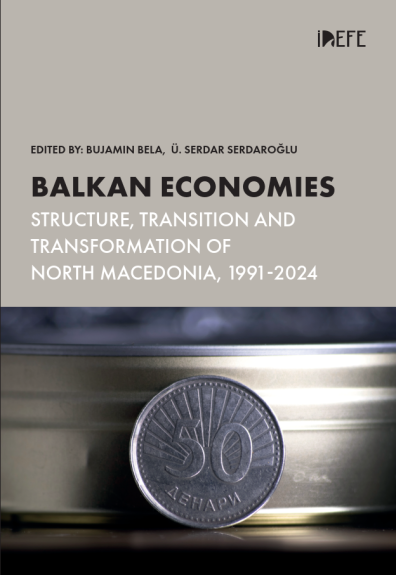Balkan Economies
The Role of Inflation on Economic Growth, With Special Emphasis on the Republic of North Macedonia
Authors
-
Neritan TurkeshiAssoc. Prof. Dr., Mother Teresa University
Synopsis
Inflation is a steady movement of increase in the general price level of goods and services in an economy. It corresponds to a loss of purchasing power for a currency that is used within the economy. As a result, more currency units are needed to buy the same amount of goods and services. A country’s currency, for exapmle Denar, euro, dollar, etc., in relation to the value is not the same in the conditions of inflation and when the purchasing power of that currency can dec-rease. This means that the money you have earned will buy less of a given service or goods. The causes of inflation are debated by many economists but most of them agree that inflation can be good and bad. An advantage of inflation is a pro-jected inflation which generally implies that an economy is healthy and growing. In situations where inflation is predicted, the demand for a product increases much faster than the supply, so the price of that product increases. If inflation is predicted by economists and as a result is expected, then the economy is likely to have negative effects. To keep the economy in balance, banks will lower interest rates and companies will raise wages.
Copyright
Copyright (c) 2025 Bujamin Bela (Volume editor); Marica Antovska Mitev, Tatjana Drangovska, Bekim Fetaji, Veland Ramadani, Blerta Kondri, Burim Latifi, Bukurije Imeri Jusufi, Neritan Turkeshi, Violeta Madzova, Arbresh Raveni, Dr. Sevba Abdula (Chapter Author); Üzeyir Serdar Serdaroğlu (Volume editor)
License

This work is licensed under a Creative Commons Attribution-NonCommercial 4.0 International License.
Downloads
Publication Information
-
Publication TypeChapter
-
Volume
-
Pages109-139
-
PublishedJune 5, 2025
-
Series
-
Series PositionResearch 10
Bela, B., & Serdaroğlu, Üzeyir S. . (Eds.). (2025). The Role of Inflation on Economic Growth, With Special Emphasis on the Republic of North Macedonia. In Balkan Economies Structure, Transition and Transformation of North Macedonia, 1991-2024: Vol. Research 10 (pp. 109-139). Idefe Publications. https://doi.org/10.51331/EB08NT
